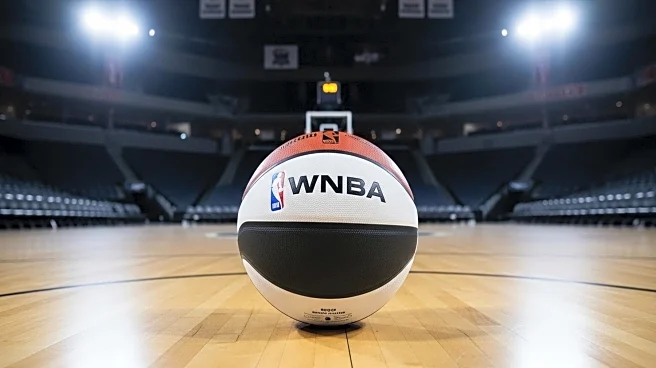What is the story about?
What's Happening?
WNBA Commissioner Cathy Engelbert is under scrutiny following comments allegedly made during an exit interview with Minnesota Lynx star Napheesa Collier. Collier claimed that Engelbert suggested players like Caitlin Clark should be grateful for their off-court earnings, attributing them to the platform provided by the WNBA. Engelbert reportedly stated that players should appreciate the media rights deal she secured for the league. Engelbert has denied making these comments, expressing disheartenment over the situation and highlighting the personal impact on her family. The controversy has sparked reactions from players, including Indiana Fever's Sophie Cunningham, who criticized Engelbert for focusing on personal achievements rather than addressing player concerns.
Why It's Important?
The controversy highlights ongoing tensions within the WNBA regarding player compensation and league management. Players like Napheesa Collier and Sophie Cunningham are voicing dissatisfaction with how the league values their contributions, particularly in terms of financial compensation. This situation underscores broader issues of equity and recognition in women's sports, where athletes often face disparities compared to their male counterparts. The criticism of Engelbert's leadership could influence future negotiations and policies within the WNBA, potentially affecting player satisfaction and league dynamics.
What's Next?
The WNBA may face increased pressure to address player compensation and management transparency. Stakeholders, including players, fans, and sponsors, might demand more equitable financial structures and clearer communication from league officials. The situation could lead to discussions about revising player contracts and media rights agreements to better reflect the value players bring to the league. Engelbert's response and any subsequent actions by the WNBA will be closely watched as the league navigates these challenges.
Beyond the Headlines
This incident may prompt a broader conversation about the role of leadership in sports organizations and the importance of aligning management practices with the values and expectations of athletes. The WNBA's handling of this situation could set a precedent for other sports leagues facing similar issues, potentially influencing how women's sports are managed and promoted in the future.

















